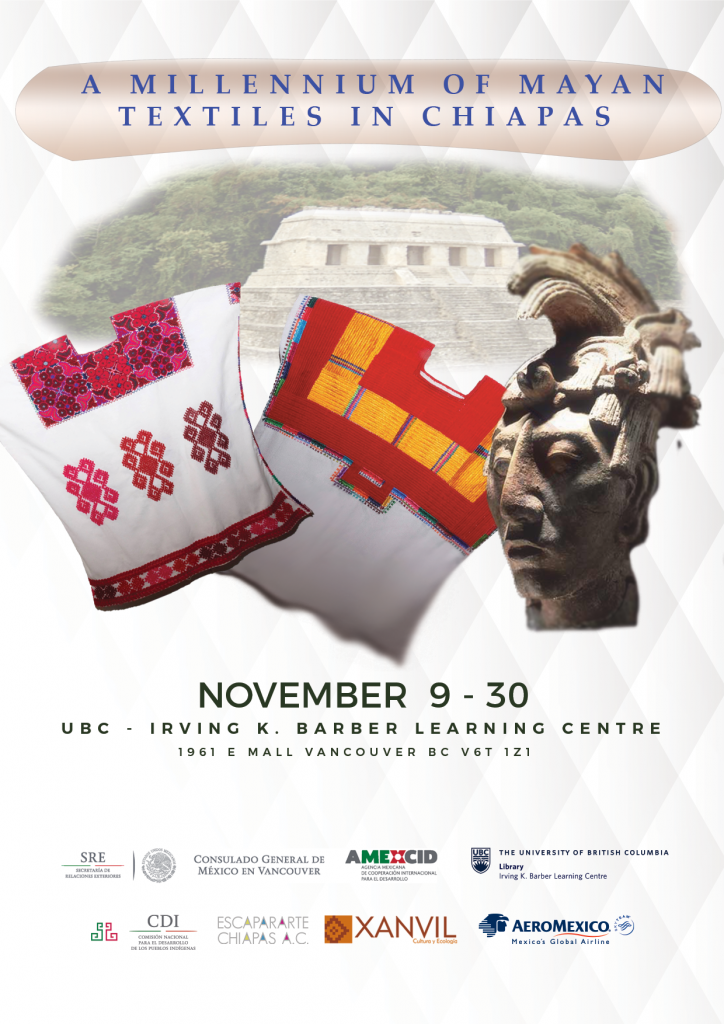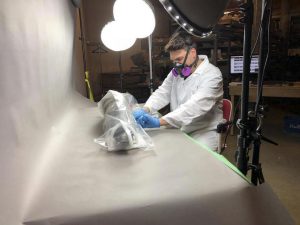Marion Woodward Lecture – Strategies and Tools for putting Patients First
This year marks the 50th anniversary of the annual Marion Woodward Lecture series made possible with the continuing support of the Mr. and Mrs. P.A. Woodward’s Foundation.
Webcast sponsored by the Irving K. Barber Learning Centre and hosted by UBC School of Nursing.
Presented by: Dr. Dawn Stacey, Professor & University Research Chair in Knowledge Translation to Patients, University of Ottawa
Mounting evidence demonstrates that engaging patients and the public as partners in healthcare decisions at both individual and community levels leads to better outcomes. However, patients and the public are not adequately engaged across a spectrum of health services and at multiple levels. This presentation will discuss evidence-based strategies and tools for supporting active patient and public involvement to put ‘patients first’ when making decisions about healthcare policies, research, organization governance, and direct care.
Dawn Stacey, RN, PhD, CON(C), holds a Research Chair in Knowledge Translation to Patients and is a Professor in the School of Nursing at the University of Ottawa. She is the Scientific Director of the Patient Decision Aids Research Group at the Ottawa Hospital Research Institute. She was inducted as a member of the College of the Royal Society of Canada in recognition of her research. She leads the Cochrane Review of Patient Decision Aids, and co-chairs the Steering Committee for the International Patient Decision Aid Standards Collaboration.
Dr. Stacey’s internationally recognized research aims to understand, measure, and evaluate implementation of decision coaching and decision support tools for patients and healthcare professionals. She leads national and international initiatives to synthesize effective interventions and develop standards for translating scientific knowledge into user-friendly tools. Her research findings are used in clinical practice, continuing education for healthcare professionals, and health policy in Canada, Chile, the United States, United Kingdom, and Australia.
Master Mind Master Class with Naheed Nenshi
Webcast sponsored by the Irving K. Barber Learning Centre and hosted by alumniUBC
Throughout his career, including his three terms as mayor of the City of Calgary, Naheed Nenshi has always emphasized the importance of civic engagement. On November 1st, join fellow UBC alumni, students, and friends in Vancouver for the next Master Mind Master Class where he will deliver the talk “Creating the Cities and Country We Deserve.”
The Master Mind Master Class speaker series is an alumni UBC program that offers an unprecedented look into the minds of modern thinkers making a unique impact on the world, and the lessons they’ve learned.
Speaker Biography
Naheed Nenshi, A’paistootsiipsii, was sworn in as Calgary’s 36th mayor on October 25, 2010 and was re-elected in 2013 and 2017.
Prior to being elected, Mayor Nenshi was with McKinsey and Company, later forming his own business to help public, private and non-profit organizations grow. He designed policy for the Government of Alberta, helped create a Canadian strategy for The Gap, Banana Republic and Old Navy, and worked with the United Nations to determine how business can help the poorest people on the planet. He then entered academia, where he was Canada’s first tenured professor in the field of nonprofit management, at Mount Royal University’s Bissett School of Business.
For his work, Mayor Nenshi was named a Young Global Leader of the World Economic Forum, was awarded the President’s Award from the Canadian Institute of Planners, and received the Humanitarian Award from the Canadian Psychological Association for his contributions to community mental health. In 2013, after his stewardship of the community during devastating flooding, Maclean’s magazine called him the second-most influential person in Canada, after the Prime Minister. He was also awarded the 2014 World Mayor Prize by the UK-based City Mayor’s Foundation as the best mayor in the world.
In 2014, he was also honoured by Elder Pete Standing Alone with the Blackfoot name A’paistootsiipsii, which means “Clan Leader” or “He who moves camp and the others follow”. In 2016, Elder Bruce Starlight of the Tsuu T’ina First Nation honoured him with the name Iitiya: “Always Ready”.
Mayor Nenshi holds a Bachelor of Commerce (with distinction) from the University of Calgary, where he was President of the Students’ Union, and a Master in Public Policy from the John F. Kennedy School of Government at Harvard University, where he studied as a Kennedy Fellow.
Moderator Biography
Anita Bathe
As the lead reporter for CBC News at 6pm, Anita Bathe takes viewers through some of the most important stories happening around Metro Vancouver and the Fraser Valley every night. Anita is an award-winning journalist for her coverage of breaking news. She has been awarded two local BCAB awards, two local RTDNA awards, a national RTDNA, and the Jack Webster Fellowship. Her job is different every day and that’s what she loves about it. One day she will be out covering the latest news on BC’s premier, the next day she may be braving the elements bringing live coverage of the latest snowfall.
When she’s not working, Anita enjoys experiencing new places and new cultures through travel. She can also be found reading a good book or attempting to cook up a new dish.
A Millennium Of Mayan Textiles In Chiapas
 Maya textiles reflect the ancestral wisdom embodied in the iconographic symbolism of its brocades that has been transmitted from generation to generation. For over a millennium, Maya women have been weaving their stories and brocade their textile legacy, continuing with the ancient tradition. They adapted their traditional style to new times, and this exhibit shows the evolving Maya fashion, techniques and materials over the past 30 years, highlighting the continuity of the symbolism and iconography.
Maya textiles reflect the ancestral wisdom embodied in the iconographic symbolism of its brocades that has been transmitted from generation to generation. For over a millennium, Maya women have been weaving their stories and brocade their textile legacy, continuing with the ancient tradition. They adapted their traditional style to new times, and this exhibit shows the evolving Maya fashion, techniques and materials over the past 30 years, highlighting the continuity of the symbolism and iconography.
This textile collection presents a small snap-shot of the changes, modes, continuity, and legacy of the diverse indigenous communities of Chiapas. Expert hands recorded their knowledge and incorporate their views of the world, adapting and using the materials they make a strong statement about their own culture – standing up for the present and the future.
We appreciate the support of the Cosulado General de Mexico in Vancouver and the Irving K. Barber Learning Centre.
EscaparArte Chiapas A.C / Xanvil A.C.
This exhibit will be on display in the Irving K. Barber Learning Centre’s foyer from November 9th, 2018 to December 18th, 2018.
Hailey Cohen
Ciculation & Program Support Assistant, Chapman Learning Commons & MAA Library
 Background
Background
Hailey Cohen (she/her) joined the Chapman Learning Commons and Music, Art, and Architecture Library in 2025. Prior to starting at UBC Library, Hailey pursued education in Psychology, English, and Photography, gaining a well-rounded understanding of emotion, storytelling, and visual expression. As a former foster youth, Hailey is an advocate for inclusivity, using her experience to raise awareness and support marginalized communities.
Current Roles and Responsibilities
In her current role, Hailey provides support to both CLC and MAA operations during the evenings and weekends.
Contact
Email: hailey.cohen@ubc.ca
Phone: (604) 827-2807
MOV completes BC Bird Taxidermy and Product Packaging digitization project
Project title: BC Bird Taxidermy and Product Packaging Digitization Project
Institution: Museum of Vancouver (MOV)
Description: The Museum of Vancouver (Mov) has completed digitization of two cateories of artefacts with significant British Columbia stories to tell. The collections selected are bird taxidermy and product packaging. The artefacts selected includes 206 taxidermied birds and 1236 pieces of product packaging for a grand total of 1442 artefacts digitized.
Collection URL: http://openmov.museumofvancouver.ca/collection

“Due to the toxicity of these specimens, it was required that the technician handle the objects with gloves, a respirator, and a lab coat with additional daily and weekly decontamination of the work station.”

The product packaging collection comprises a variety of product types and packaging materials such as canned goods, wooden crates, glass milk bottle and pharmaceuticals.
Sarah Robertson
Program Assistant, Chapman Learning Commons
 Background
Background
Sarah Robertson initially joined the Chapman Learning Commons (CLC) team as a Work Learn student employee, and in 2025 returned to CLC as a Program Assistant. Sarah has completed a BA in English, Emphasis Literature and History, with a focus on Medieval History in the latter. She has a keen interest in web development work.
Current Roles and Responsibilities:
In her current role, Sarah assists with the daily operation of CLC, working alongside student-staff and program management.
Contact:
Email: sarah.robertson@ubc.ca
Phone: (604) 827-4811